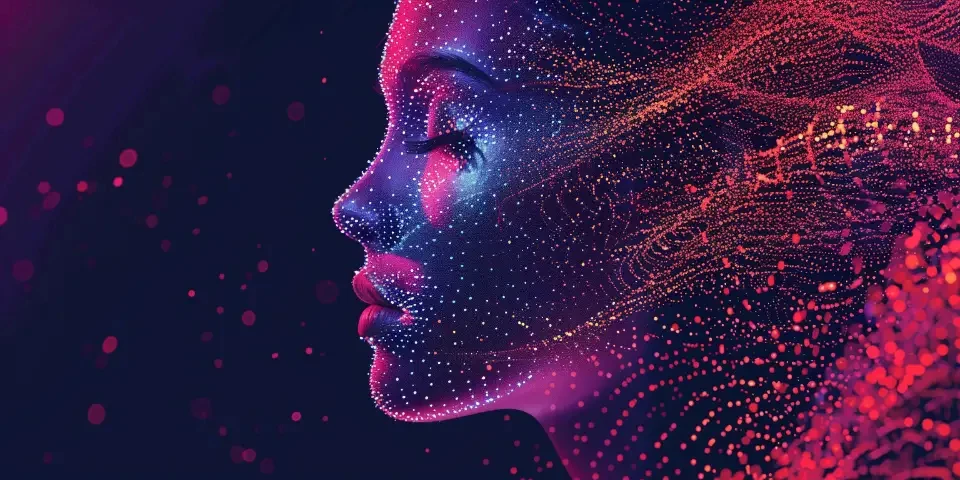The Voice of the Future Empowering AI Writers to Create Authentic Narratives
The rapid advancements in artificial intelligence (AI) have paved the way for transformative applications across various fields, including writing. AI-powered writing tools and platforms have emerged, enabling authors to create authentic narratives and revolutionizing the way we produce content. This article explores the power of AI in writing, its potential benefits and concerns, and how it is reshaping the future of storytelling.
1. Enhancing Creativity and Efficiency
AI-powered writing tools, such as natural language processing algorithms, can analyze vast amounts of data in seconds, providing writers with valuable insights and inspiration. These tools can generate ideas, suggest alternative phrasings, or identify gaps in the narrative, enhancing the creative process and boosting efficiency.

Additionally, AI can automate repetitive tasks like proofreading and grammar checks, freeing up time for writers to focus on the more substantive aspects of their work.
2. Tailoring Writing to Different Audiences
AI has the ability to understand and adapt to different writing styles and tones. This enables writers to tailor their content for specific target audiences effortlessly. Whether it's crafting a persuasive marketing message or penning an academic paper, AI can provide valuable guidance on the appropriate language, vocabulary, and structure.
3. Overcoming Writer's Block
One of the most common challenges writers face is encountering writer's block. AI can assist in overcoming this hurdle by suggesting alternative ideas or reviving stale concepts. By analyzing existing content or referencing a vast database of information, AI tools can spark new creative avenues and help writers find their voice.
4. Fact-Checking and Research
Ensuring accuracy and reliable sourcing is crucial in any written work. AI can streamline the fact-checking and research process by quickly scanning and cross-referencing vast amounts of information from reliable sources. This not only saves time but also enhances the credibility of the content being produced.
However, it is imperative to critically assess the validity and bias of the sources used.
5. Language Translation and Localization
AI-powered language translation tools have made significant progress in recent years. These tools can accurately translate written content between multiple languages, breaking down communication barriers and enabling global collaborations.
Furthermore, AI can help localize content by considering cultural nuances, ensuring the written work resonates with the intended audience in different regions.
6. Ethical Considerations of AI Writing
While AI has opened up new possibilities for writers, ethical concerns must be addressed. Plagiarism detection algorithms, for instance, help maintain originality and integrity in writing. However, care must be taken to strike a balance between plagiarism prevention and preserving the creativity and individuality of the author.
Moreover, the potential use of AI for generating fake news or propaganda raises issues of misinformation and credibility. Proper safeguards and verification processes need to be implemented to ensure the authenticity and accuracy of AI-generated content.
7. Human-AI Collaboration
Embracing AI in writing does not replace human creativity; instead, it complements and empowers it. The collaboration between writers and AI can enhance productivity and elevate the quality of content. Combining the unique ideas and emotions of human authors with the analytical capabilities of AI results in a harmonious synergy that drives innovation in storytelling.
FAQs:
Q: Can AI completely replace human writers?
A: While AI can assist in various aspects of the writing process, it cannot completely replace human writers. AI lacks the innate creativity, emotions, and experiences that humans bring to storytelling. The collaboration between humans and AI is likely to yield the most impactful results.
Q: Are AI-generated narratives considered authentic?
A: AI-generated narratives can emulate the styles and structures of human writing, but they may lack the deeper understanding, empathy, and personal touch that human authors bring. Authenticity in storytelling is often linked to the human experience, making human involvement essential in creating truly authentic narratives.
Q: Is it legal to use AI-generated content without proper attribution?
A: It is important to adhere to copyright and attribution rules when using AI-generated content. Just like content created by humans, AI-generated content may be subject to copyright protection. Proper attribution should be given to both human and AI contributors to respect intellectual property rights.
References:
1. GPT-3: Language Models are Few-Shot Learners, OpenAI, 2020.
2. Knaflic, C. N. Storytelling with Data: Let's Practice!, Impact Dialing LLC, 2019.
3. The Coming Age of Autocomplete Citizenship? Artificial Intelligence Policy's Future Dilemma, Cambridge Handbook of Artificial Intelligence and Law, 2020.
Explore your companion in WeMate